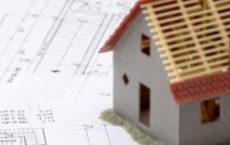If you are new to self build mortgages we’re here to help you get to grips with the basics. We’ve been lending on self build properties for a number of years and can help you every step of the way.
What is a self build mortgage?
Firstly, the main difference to a residential mortgage is quite simply that the building doesn’t even exist yet, or exist in its current form. We lend money on the land itself, to help pay for materials and labour, and will consider new builds, renovations, conversions and knock down and rebuilds. Our products are available up to 80% LTV, for up to £500,000.
To help your clients with cash flow during the build our products are available on an interest only basis and the mortgage funds are released in several stages, which helps your client as they do not pay interest on the whole amount required from the get-go.
What is a stage payment?
With us, the staggered release of the mortgage funds can be flexible according to your client’s requirements. Typically there are five to seven stages, such as funds being released for completion of foundations, building up to eaves level, making the build watertight, installing windows and interior finishing and fixtures. At each stage it is likely we would instruct a valuer to inspect the property, to make sure everything is progressing in line with the proposed plans.
Our self build mortgages are 'arrears' based, meaning that your client should have enough savings to fund the first stages of the build.
What information is needed?
Before applying for a self build mortgage, you should check that your client has the following in place:
- Ownership of suitable plot of land, with planning permission
- Detailed plans of the property
- Realistic projection of costs
- Access to their mortgage deposit
We’ll also need the usual documentation when making a mortgage application, such as evidence of employment and income plus expenditure details.
How your clients could benefit from self build
Buying a home is always a big decision, and even more so when there is significant building work involved. By building their own home, your clients will:
- Save on stamp duty – this is only paid on the cost of the land, and only then if it exceeds £125,000
- Benefit from VAT savings – they can claim VAT back on labour and many material costs for new build houses
If you have a client with a self build project, we’re here to help you.










